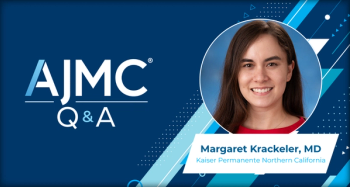
Dr Sophia Humphreys Discusses GPO Impact on IDN, Hospital Product Decisions
Sophia Humphreys, PharmD, director of formulary management at Sutter Health, discusses how group purchasing organizations (GPOs) influence integrated delivery networks (IDNs) and hospitals in making formulary decisions, including the adoption of biosimilars.
Sophia Humphreys, PharmD, MHA, BCBBS, director of system formulary management and clinical programs at Sutter Health, discusses the role a group purchasing organization (GPO) can play in how integrated delivery networks (IDNs) and hospitals make formulary decisions, including whether to add a biosimilar.
Humphreys was a cochair at The American Journal of Managed Care®’s Institute for Value-Based Medicine (IVBM) event in Seattle, Washington, cohosted with Providence. During the event, she presented on pharmacoeconomic impacts of biosimilar market expansion and participated in a panel discussion. The IVBM event highlighted integrative approaches in neuroscience population health, with additional presentations on the Alzheimer disease landscape, nonopioid pain management, and the impact of biosimilar market expansion.
This interview was edited for clarity.
What role do GPOs have in the decision-making process for whether an IDN/hospital adopts a new product?
That's a great question, and a lot of the IDNs work closely with GPO groups, and a lot of them have direct consultants from these GPO groups. They have both clinical as well as financial advisory groups that are working with the IDNs. So the old concept of GPOs only providing contracts for medications has really evolved in recent years. We rely on our GPO companies, for example, for product forecasting, for negotiating better pricing for different groups, and also for some drug savings ideas, for formulary management as well as utilization management.
What factors do they prioritize when evaluating the cost-effectiveness of a biosimilar compared with its reference biologic?
So, a lot of the GPO companies actually do 2 things. One, they will evaluate the ASP [average sales price] of each biosimilar so that we understand better how each product is reimbursed. Two, they will provide the cost information for these products, and those are determined by the GPO companies. I don't think I have the permission from either of the GPO companies that I'm working with [to say] how they do their evaluation. But rest assured, when we work with them, when we collaborate with them, we do see what I see: the balance sheet must be balanced, right? So, you see the acquisition costs. You also have the information for reimbursement so that you can do a comprehensive analysis to select the preferred product.
Newsletter
Stay ahead of policy, cost, and value—subscribe to AJMC for expert insights at the intersection of clinical care and health economics.
















